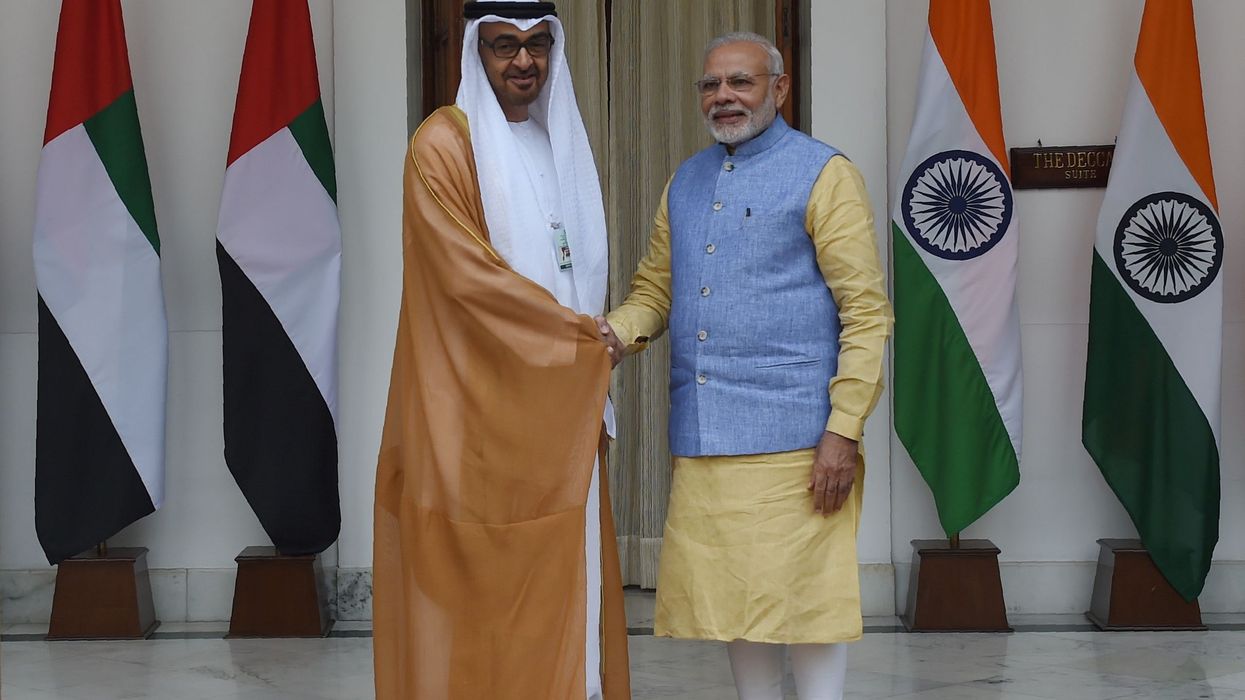The United Arab Emirates and India signed a "milestone" economic deal to boost trade and investment Friday, as the countries seek to bolster their economies after the coronavirus pandemic.
Abu Dhabi Crown Prince Mohammed bin Zayed Al-Nahyan, the UAE's de facto ruler, and India's prime minister Narendra Modi held a virtual summit to witness the signing of the Comprehensive Economic Partnership Agreement, among other pacts.
The deal's signing "is a milestone event in our bilateral relations", the official Emirati news agency WAM quoted Indian foreign minister S. Jaishankar as saying.
"It will open new opportunities in both trade in goods and services, and will lead to enhanced investments."
WAM said the pact is "expected to usher in a new era of economic cooperation and unlock greater avenues for trade and investment".
India-UAE trade is valued at $59 billion, making the oil-rich Gulf country India's third largest trading partner for the year 2019-20, after China and the United States, according to the Indian foreign ministry.
The UAE is India's third largest export destination with nearly $16 billion clocked in 2020-21, it added.
Major exports include petroleum products, precious metals, stones, gems and jewellery, minerals, food items and textiles.
The UAE hopes that non-oil trade with India will rise from pre-pandemic levels of $40 billion to more than $100 billion within five years, WAM said.
The two countries have had close and friendly ties for decades, establishing diplomatic relations in the early 1970s -- shortly after the Gulf country's founding.
Indians in the UAE make up the largest expatriate community, approximately 35 percent of its 10-million strong population.
Remittances sent back to India from its citizens in the Emirates reached more than $17.06 billion in 2019, according to the Indian foreign ministry.
Earlier this week, the UAE signed a similar package of deals with Turkey.




